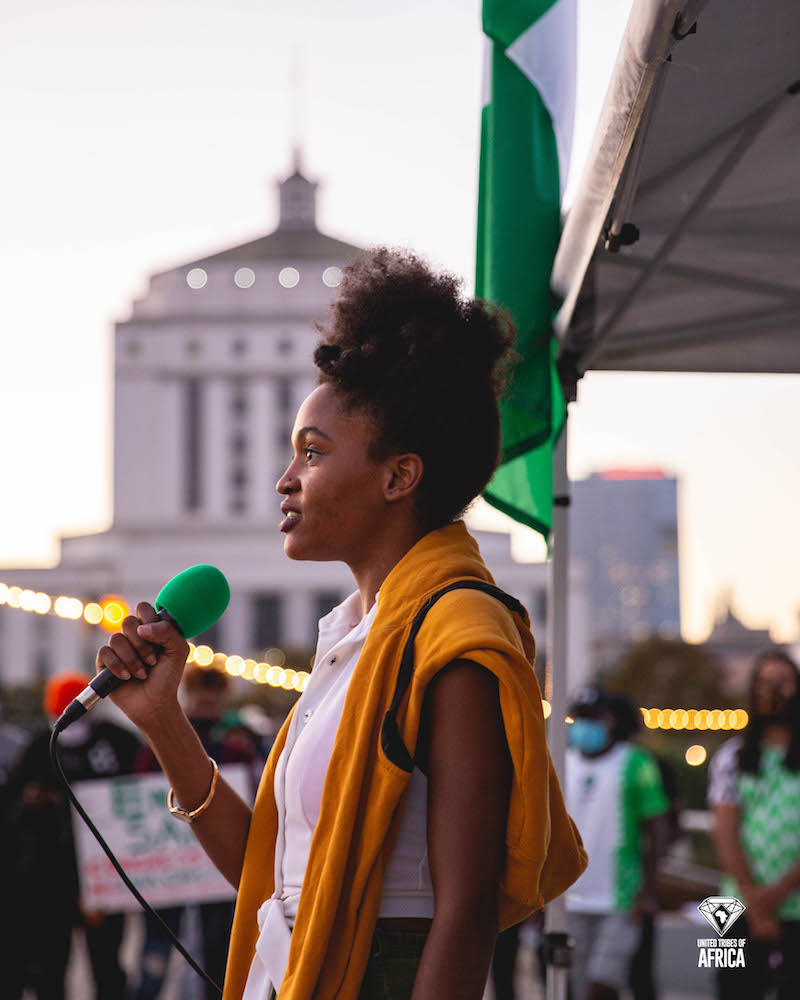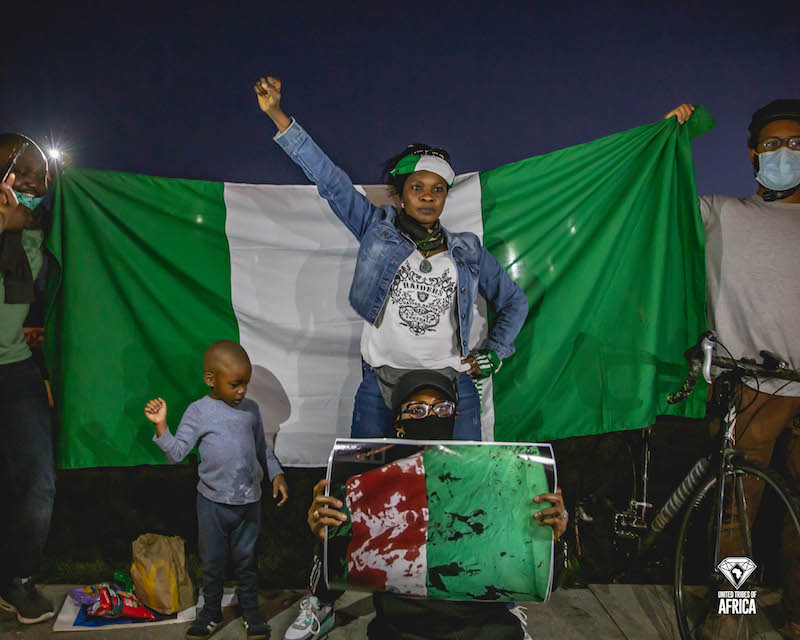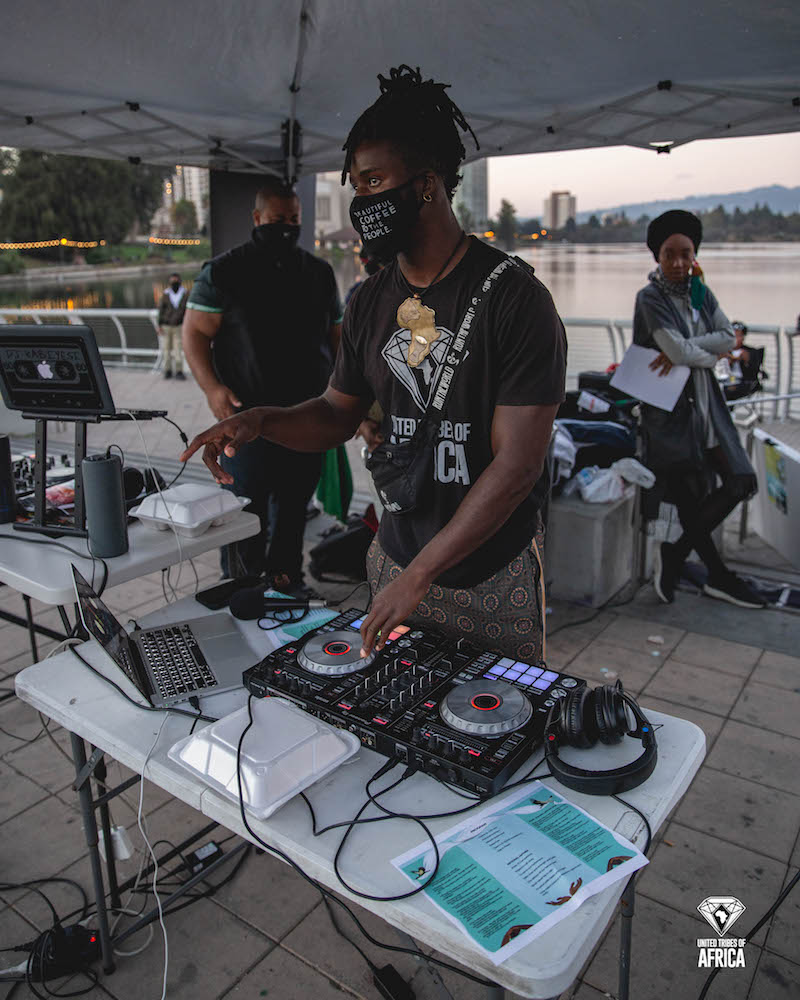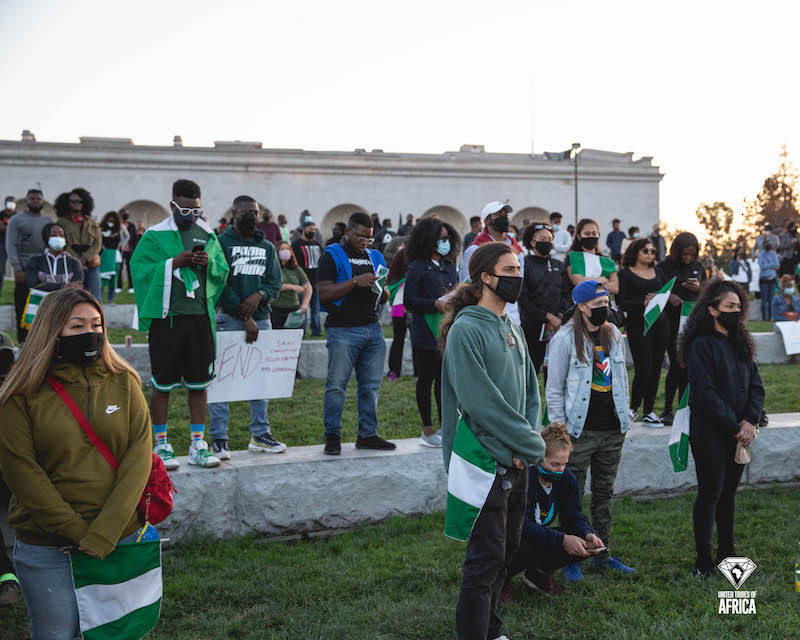When Nigerian soldiers shot at a crowd of protesters at the Lekki Toll Gate in Lagos on Oct. 20, killing at least 10 people, Renua Giwa-Amu knew she had to do something—even if that something would happen all the way across the world, in Oakland.
The Bay Area artist and animator grew up in Lagos, and she passed through the Lekki Toll Gate every day on the way to school. News of the massacre horrified her. “It’s heartbreaking even if you were disillusioned before,” she says, adding that her cousins back home have been attending the protests against police violence. Thankfully, none of them were hurt.

Now, Giwa-Amu has joined a global movement of the Nigerian diaspora organizing in solidarity with those on the ground her home country. Last Saturday, Oct. 24, she helped plan a protest that drew hundreds of Nigerian Americans and their supporters to Oakland’s Lake Merritt amphitheater. Its goal was to amplify the #EndSARS movement, which calls for the dissolution of Nigeria’s Special Anti-Robbery Squad (SARS), a police unit that has been accused of extorting, brutalizing and sexually assaulting young people in Nigeria without accountability since the 1990s.
Peaceful protests against SARS have been going on since 2017 but picked up momentum this October after the police killing of a man in Ughelli was captured on video, drawing comparisons with the Black Lives Matter movement in the U.S. Though the Nigerian government announced that it would disband SARS on Oct. 12, demonstrators question whether it’s an empty promise and have continued marching. They see their movement as a referendum on corruption, inequality and oppression in Nigeria. Amnesty International estimates that Nigerian police killed over 56 protesters and injured dozens more in the most recent uprisings.
“In Nigeria everyone is Black, so people socially profile [instead of racially profiling],” says another organizer of Saturday’s protest, Jeffrey Amechi Enebly, who DJs and throws events as Flygerian Jeff. Born and raised in Oakland, Enebly says he was harassed by police officers last time he went to Abuja to visit family in 2015. He says that Nigerian police often extort young people who look wealthy, or simply untraditional, under the pretext that they’re suspected thieves or scammers.




